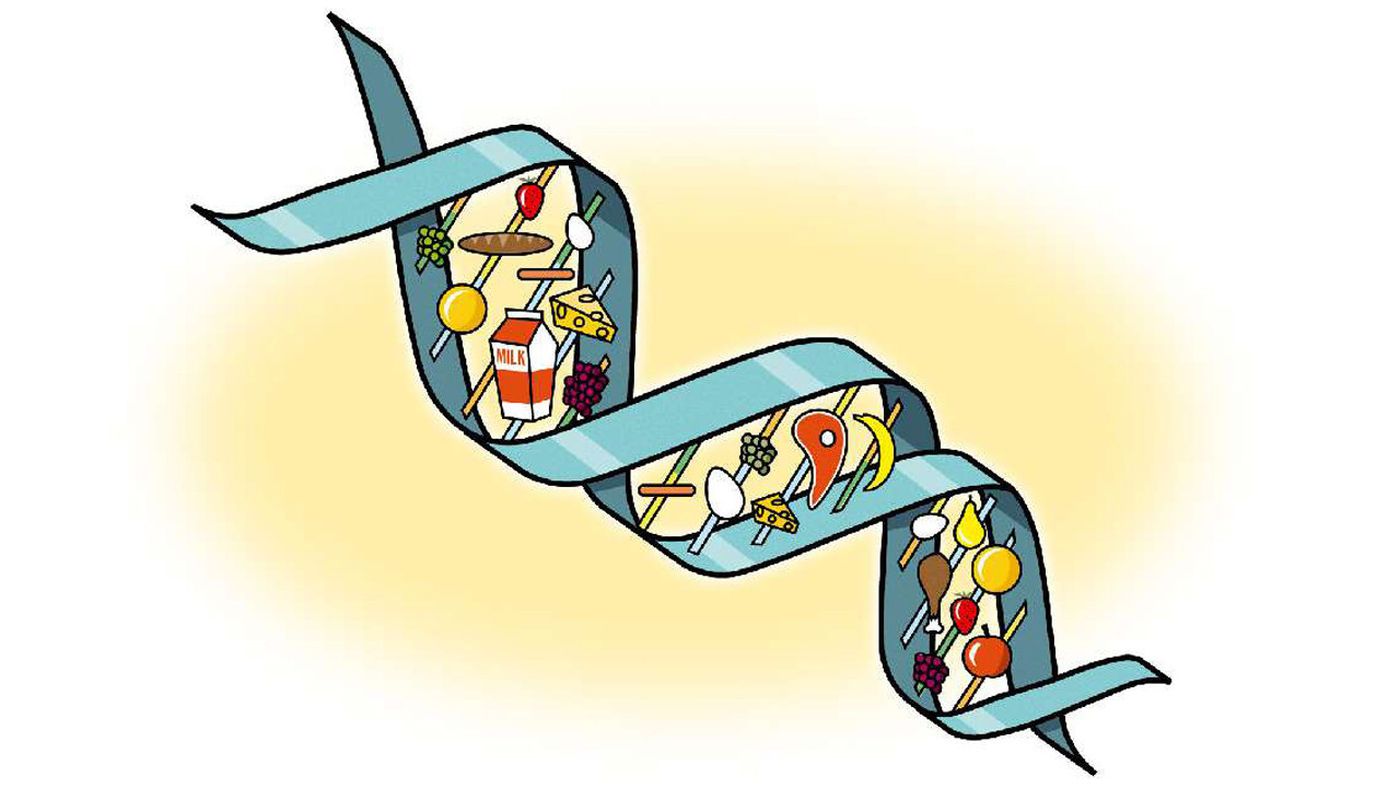Your DNA won't decide the best eating regimen to enable you to get thinner

Attempting to get more fit? Specialists have some uplifting news: You can picked either a low-fat or low-carb eat less. For whatever length of time that you stay with it, you can thin down regardless of what your hereditary make-up or metabolic particulars.
Furthermore, here's a special reward: You won't need to check your calories.
The discoveries were distributed Tuesday in the Journal of the American Medical Assn.
Early research has proposed that specific groups of quality variations may be great indicators of a person's reaction to specific eating regimens. On a therapeutic scene in which DNA testing is progressively used to tailor medications to singular patients, the possibility of such "exactness prescription" for weight reduction has had an intense charm.
That examination, quite a bit of it done by a similar Stanford Medical School group that led the new JAMA consider, has additionally demonstrated enticing for hereditary testing labs hoping to find business. Promoting its genomic coordinate making administrations to health food nuts, for example, one lab offers clients the opportunity to "lose up to 3x more weight on your DNA eat less carbs."
Regardless of whether those variables really had any kind of effect in how subjects reacted to a low-fat or low-carb consume less calories was the examination's focal inquiry.
The scientists from Stanford's Prevention Research Center were persuaded by a current confound.
In clinical trials of weight reduction mediations, there's a great deal of range behind the "normal weight reduction" numbers announced for gatherings of study volunteers. Following a year of eating less carbs, singular subjects may lose as much as 55 pounds. Others, be that as it may, will pick up 11 pounds.
"The generous inconstancy of weight reduction reaction proposes a few systems may work preferable for a few people over others, and that nobody eating routine ought to be prescribed all around," composed the creators, drove by nourishment and corpulence scientist Christopher D. Gardner.
Gardner and his partners enlisted 632 overweight or large grown-ups between the ages of 18 and 50 and haphazardly doled out them to take after either a sound low-fat eating routine or a solid low-sugar consume less calories for a year. On the whole, 609 finished the examination.
Before setting out on their weight reduction travels, the subjects took a glucose resilience test to see in the case of, as indicated by past research, they ought to have an especially solid reaction to a low-carb slim down. They likewise took a DNA test to put them into one of three classes: the individuals who conveyed a bunch of quality variations known to make them more delicate to dietary fats; the individuals who are hereditarily more touchy to sugars; and the individuals who have none of the eating routine related hereditary varieties scientists tried for.
Once the eating less carbs got in progress, members learned and honed the basics of decreasing either fats or carbs in their eating regimens. In upwards of 22 little gathering gatherings drove by mentors, they were likewise urged to dodge the undesirable entanglements of each eating regimen, such as gorging on bacon on the low-carb count calories or snarfing "without fat" brownies on the low-fat eating routine.
Members in each gathering were told to locate the most reduced level of low-fat or low-carb eating that they could maintain "inconclusively." And those in the two arms of the examination were urged to eat nourishments arranged at home at whatever point conceivable, to expand vegetable admission, and to limit their utilization of handled sustenances, or those made with included sugars, refined flours and trans-fats.
Critically, there were no guidelines to monitor their calories.
"We just disclosed to them how to curtail carbs and fat. Furthermore, we energized them — pushed them truly — to not be ravenous, to locate their sweet spot," Gardner said. "We said it in advance: We need this to be long haul, to be solid, to have a ton of fun and make the most of your nourishment."
Following a year, the 305 subjects on the low-fat eating routine had lost a normal of around 11.5 pounds, while the 304 subjects who finished the low-carb abstain from food had lost a normal of 13 pounds.
None of the genomic or metabolic tests were great indicators of a subject's prosperity on one eating regimen or the other, the specialists found.
"Neither of the two conjectured inclining factors was useful in distinguishing which eating routine was better for whom," they composed.
"The calorie following is working for a subset of people," Gardner said. "The vast majority begin logging and following lastly say, 'This sucks! I'm not doing this any longer.'
"We truly must discover different routes" to change individuals' weight control plans, Gardner included. "We needn't bother with one arrangement … we require many arrangements.
Congratulations @rizwanjaan! You have received a personal award!
Click on the badge to view your Board of Honor.
Congratulations @rizwanjaan! You received a personal award!
You can view your badges on your Steem Board and compare to others on the Steem Ranking
Vote for @Steemitboard as a witness to get one more award and increased upvotes!